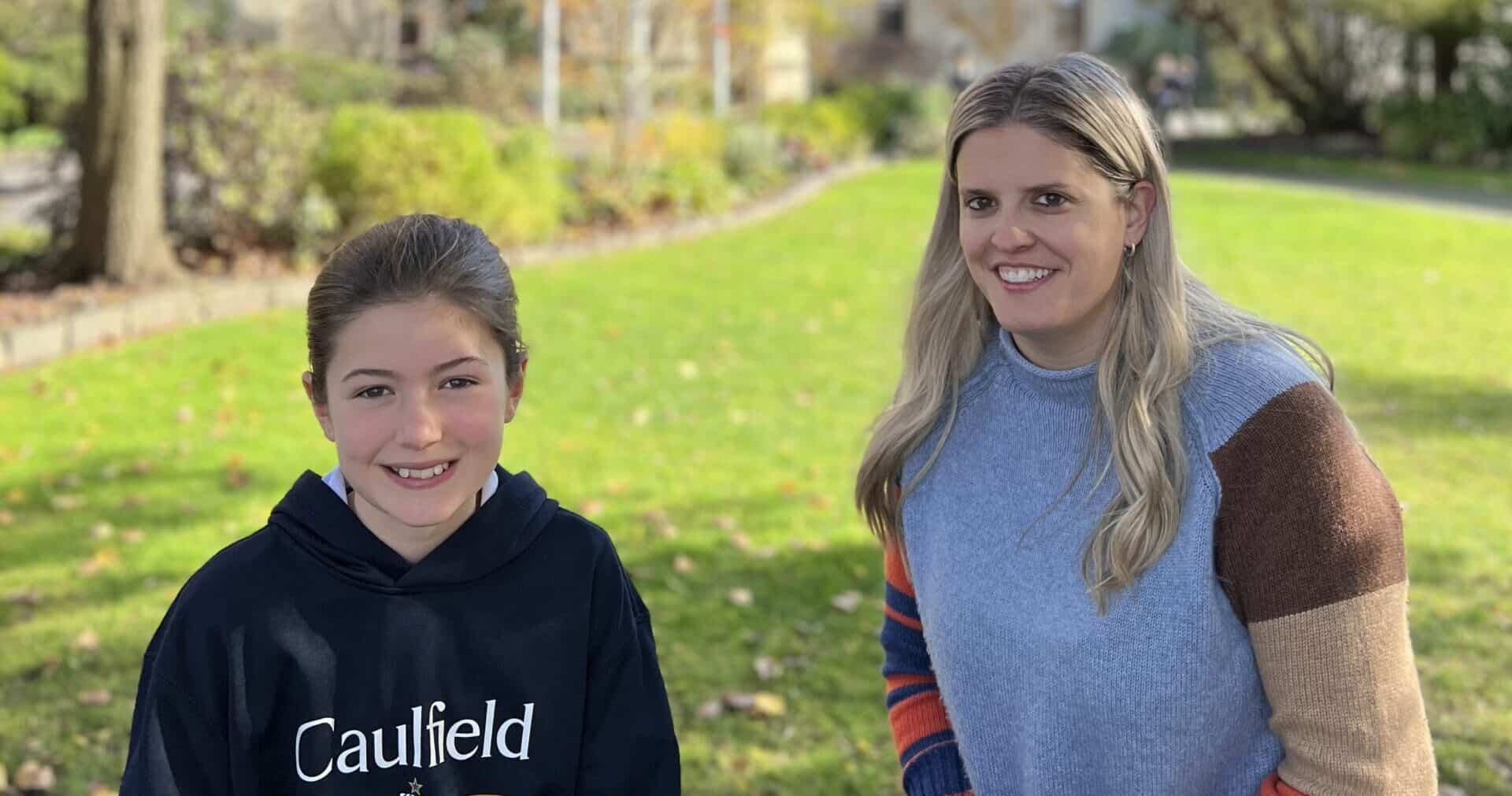A shared love of STEM
Emma Perrett (Head of STEM at Malvern Campus) chats with Annie (Year 5) about their shared love of STEM


Emma: What do you know about STEM?
Annie: STEM is an acronym for Science, Technology, Engineering and Maths – four different concepts but they’re taught together. At Malvern Campus, it’s a new ‘specialist’ and we see you every week for one hour. What made you want to teach STEM?
E: I love teaching STEM. The best part of being a STEM teacher is that I get to teach everybody from ELC through to Year 6. For many, it’s their favourite subject, because it’s so hands-on and they have fun. So, not only are we learning some really big concepts, but we do it in a really fun and interactive way. I think the children really enjoy the subject.
A: Yeah, it’s really fun!
E: How did you become interested in STEM?
A: I’ve always had a passion for Maths and Science. Last year, we went to ‘Twisted Science’ and I realised that STEM has both of my favourite passions, so I was intrigued. This year, when we started having lessons with you, I realised I really enjoy STEM because there’s so many opportunities – I love it. Did you enjoy STEM subjects when you were younger?
E: STEM wasn’t a thing when I was your age. I wish it had been, because I think it would have been my absolute favourite subject. When I was at school, we rarely did Science – we maybe had three visits a year to the Science lab at the Secondary School, and obviously Maths was a subject. But we didn’t have Engineering or the design process or anything like that, so I can’t say whether I’d have enjoyed those subjects, but I definitely enjoy teaching those subjects. What do you enjoy most about our STEM unit here?
A: I love the Malvern STEM classes. We recently learnt about light and got to use hands-on materials, like a light box. It was interesting seeing how light refraction works and what light really is and how it happens.
E: It was really good, too, with that light unit, because we didn’t just look at light as a form of energy, but we actually looked at different light occupations and the avenues that you could go down if you were really interested in light. That’s something else we never did when I was at school. We wouldn’t even have known those sorts of jobs existed! Jobs like the optical engineer, the materials scientist, and other occupations that would need light. In all my classes I try to show children the sort of jobs that they can get into in the future. Are you interested in a job in STEM?
A: Yes, I would love to. I think it’s cool how you start the lessons showing the opportunities. I would love to be a materials scientist or an optical engineer because I think I’ve learnt so much at Malvern that I could definitely use in future everyday problems. STEM is just really fun, so I think that would be amazing and enjoyable to pursue.
E: I never thought I’d be a STEM teacher, mainly because I didn’t know it existed. When I went back to university for my Masters in Education, after teaching primary for many years, one requirement was a research project. My project looked at why young girls aren’t choosing STEM subjects when they go on to Secondary School, and why young women aren’t choosing to pursue careers in STEM. Women are really underrepresented in the STEM space. So I decided I wanted to inspire young girls from ELC to Year 6 so that when they get to secondary school, they already have that passion and knowledge and maybe want to pursue STEM further. Do you think you’ll continue to enjoy STEM and maybe pursue it in Secondary?
A: Yes! I would love to! I think there would be so many opportunities. I would get to do more complex investigations, Science reports and experiments. Because I already understand so much from here, I think that would be really fun to expand my knowledge and, who knows, maybe pursue a career in STEM. What sort of careers do you see becoming popular or needed in future?
E: Do you know, there are SO many jobs that don’t even exist yet! Jobs that we don’t even know about. That’s why we do STEM. That’s why we do a lot of hands-on to find solutions to problems. We want to open your eyes to the possibilities of jobs of the future. In the future, we’ll need people to problem-solve, we’ll need people to think critically and creatively. And these are the skills we get from STEM. I can’t really say what the jobs will be. I just know that the skills you’re gaining in our STEM classes, you’ll be able to use when you’re out there in whatever job you choose to do in the future. What is one thing you have learnt or discovered in our STEM classes that’s really interested you?
A: A few weeks ago, I learnt that viscosity is about how things move and how quickly or slowly they move. STEM has really opened my mind to realise that combining subjects helps you understand each subject a lot more.
E: Yes, one thing that we do here in our STEM classes is try to involve all four areas of STEM when we learn. We do a lot of coding but, within that, we also have design challenges where we use the design process. And then Maths – with measuring and other maths concepts. I really try to ensure we’re covering all four areas, so that you really get the experience of STEM and we don’t just have separate Science lessons and maths lessons – that it really is a combination of the four areas.


